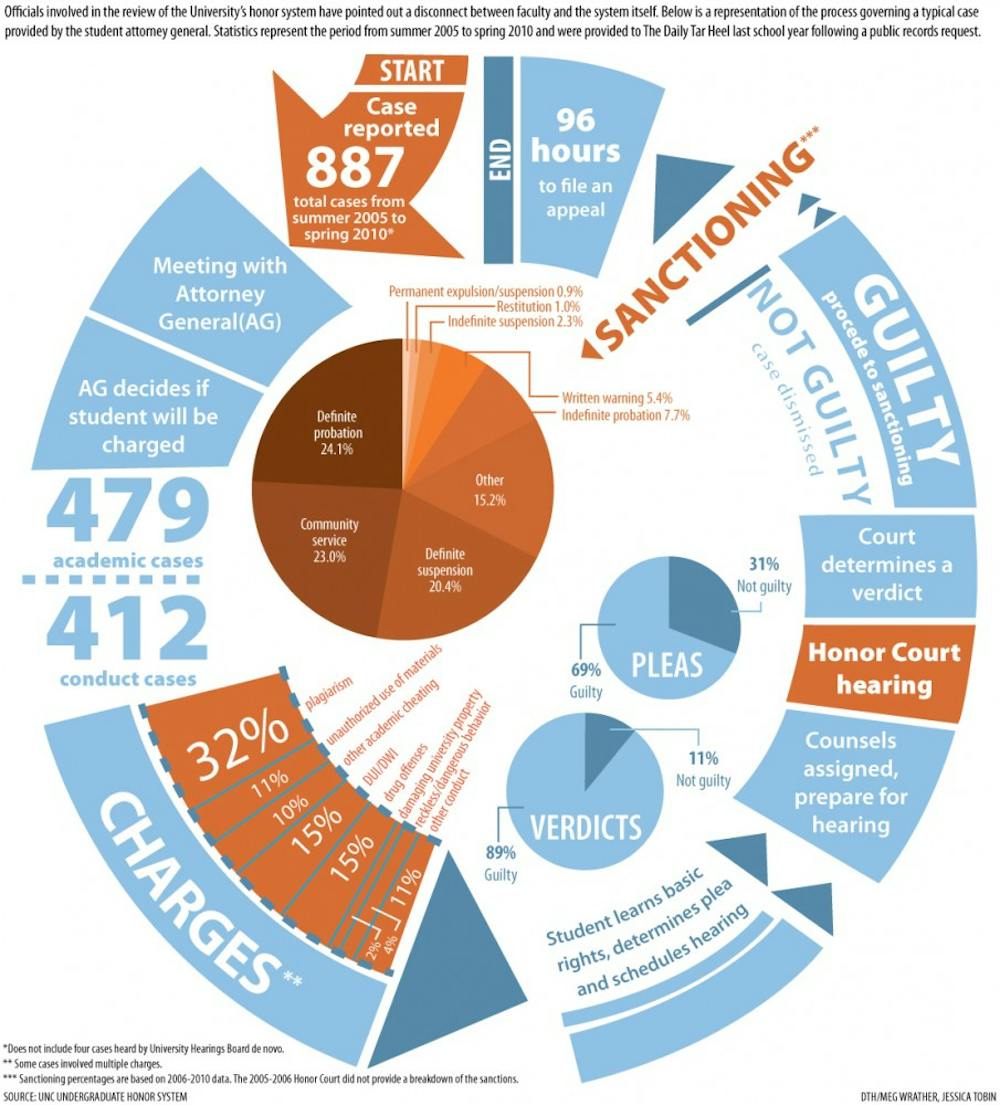The scandal that has mired the University’s athletic program in uncertainty has also engulfed one of its oldest institutions: the
student-led honor system.
After it was revealed this summer that the 136 year-old institution had not detected substantial plagiarism in a paper by former defensive end Michael McAdoo, Chancellor Holden Thorp initiated a review of the system.
“Regardless of the situation with football, it just makes good sense to seek ways to improve our commitment to honor and integrity,” Thorp wrote in an email to UNC students and faculty earlier this month.
Any concrete goals of the review remain unclear. What has become apparent is that nearly every aspect of the system — which is responsible for addressing student misconduct ranging from plagiarism to rape — is up for discussion.
That includes the involvement and influence of UNC’s faculty in the Honor Court process.
“Some faculty feel alienated from the system,” said Chairwoman of the Faculty Council Jan Boxill, who is charged with forming a task force to conduct the review.
“They report (violations) but don’t really have a connection with it. It’s just something they have to do,” Boxill said, adding that the task force will likely be formed in mid-September.
Review preceded football
In October, the Honor Court found McAdoo guilty of one count of academic fraud — receiving help with a works cited page from tutor Jennifer Wiley on a paper that was later found to be largely plagiarized.



